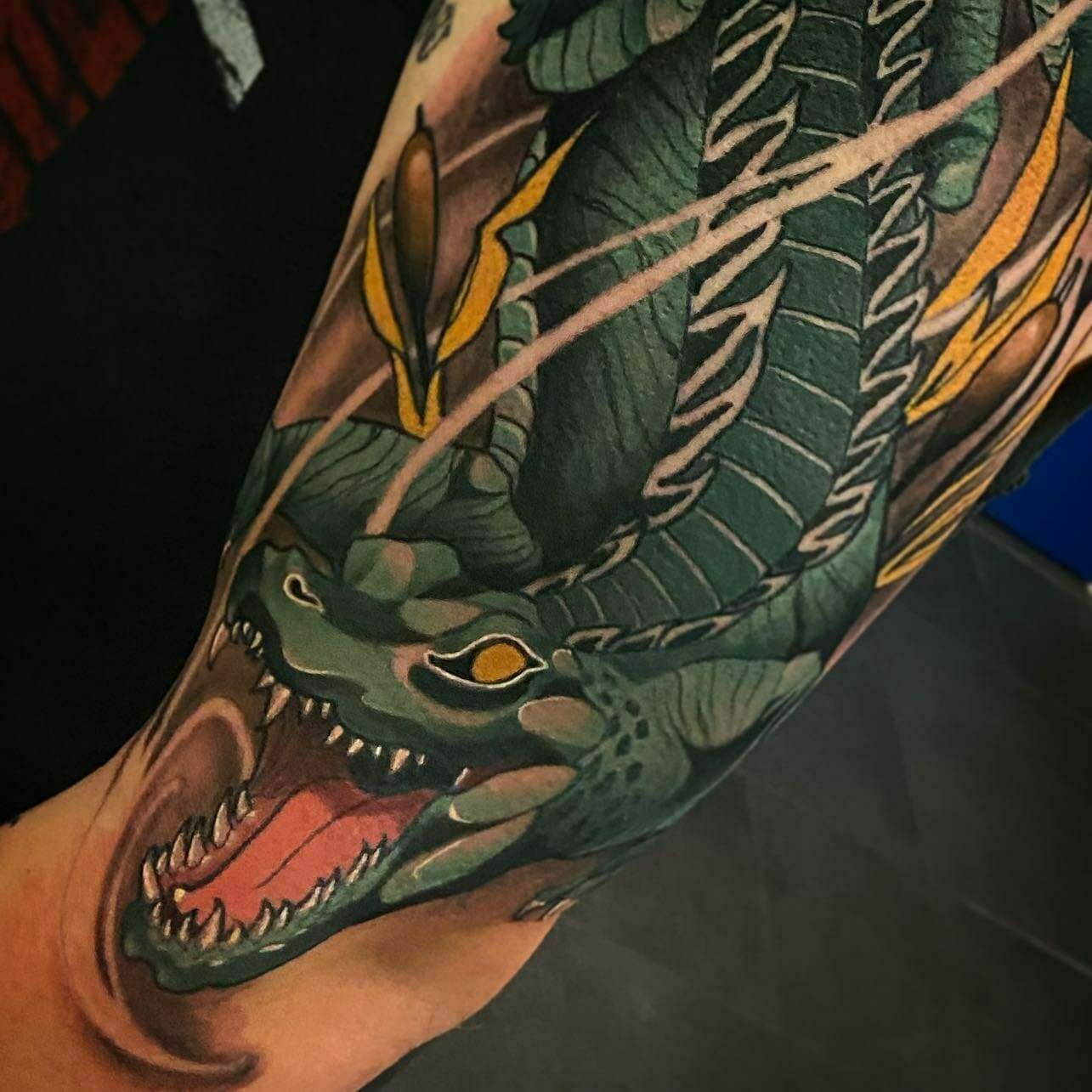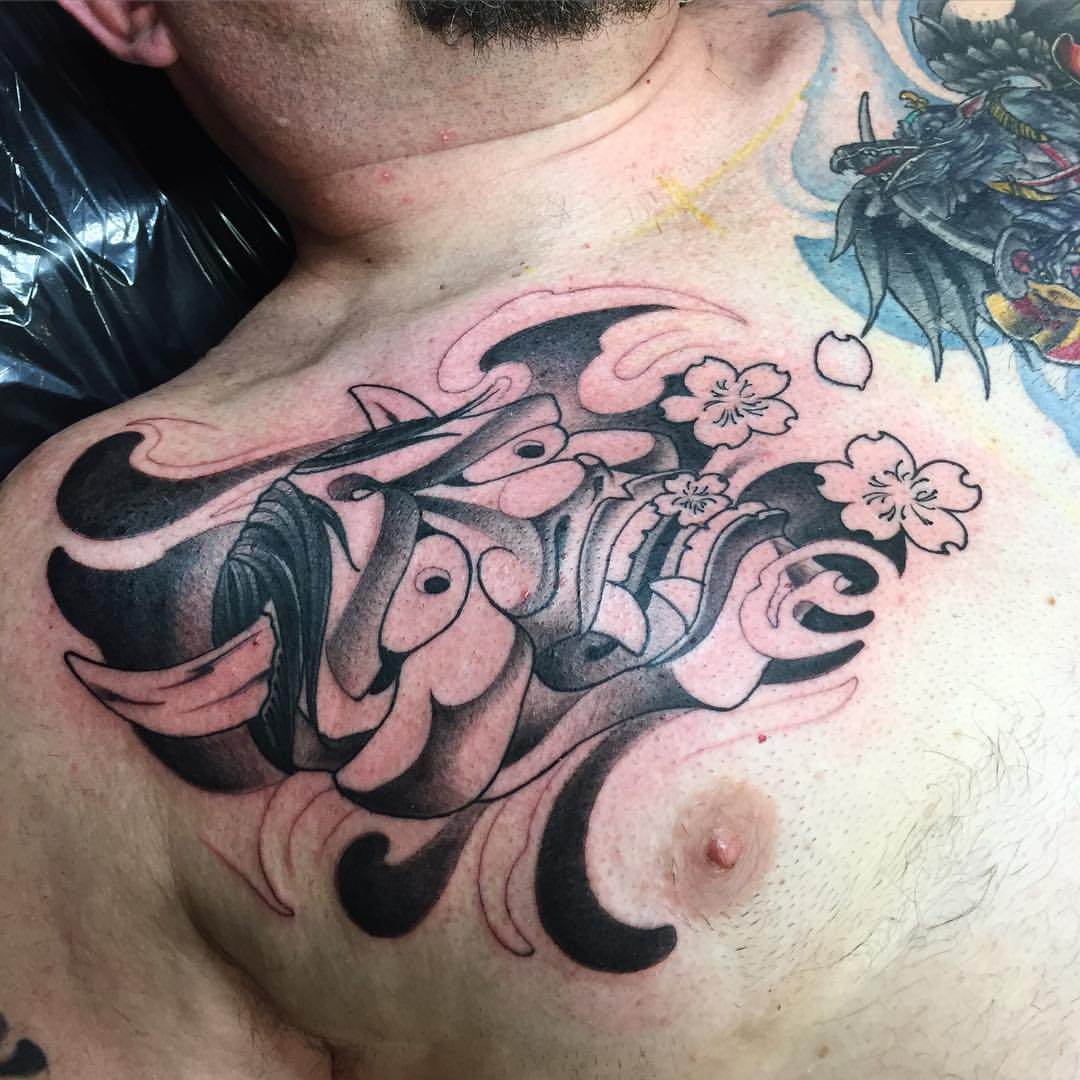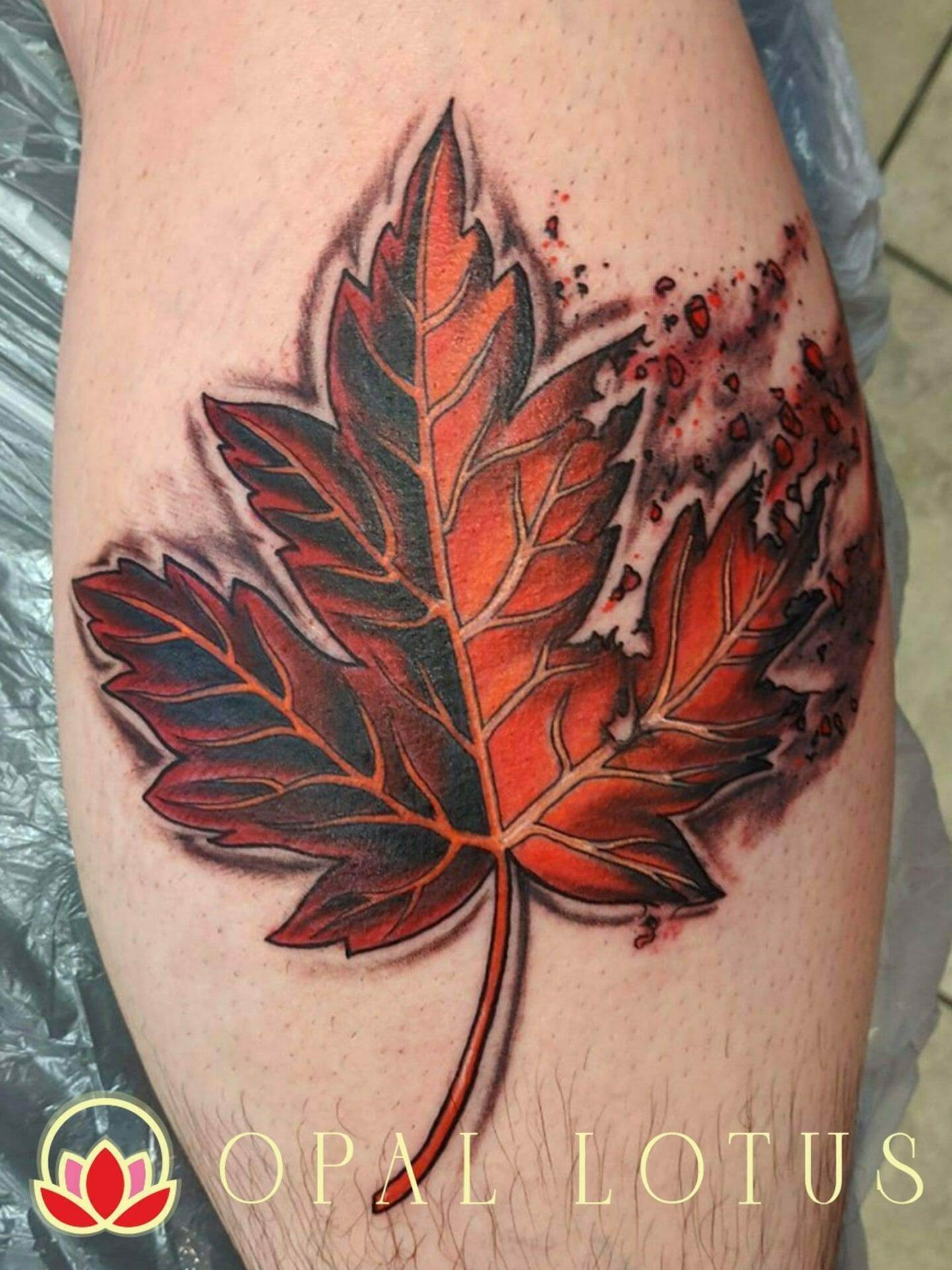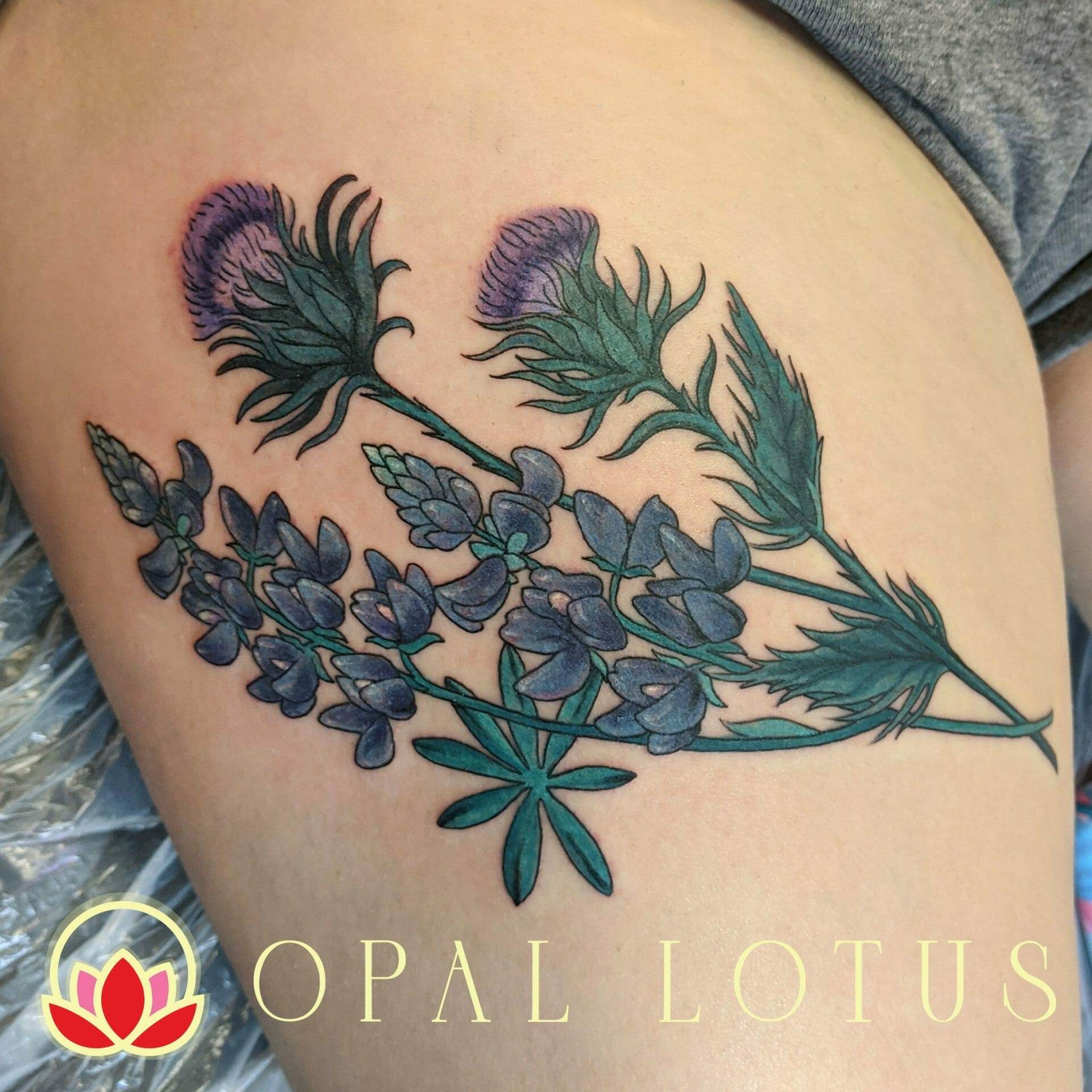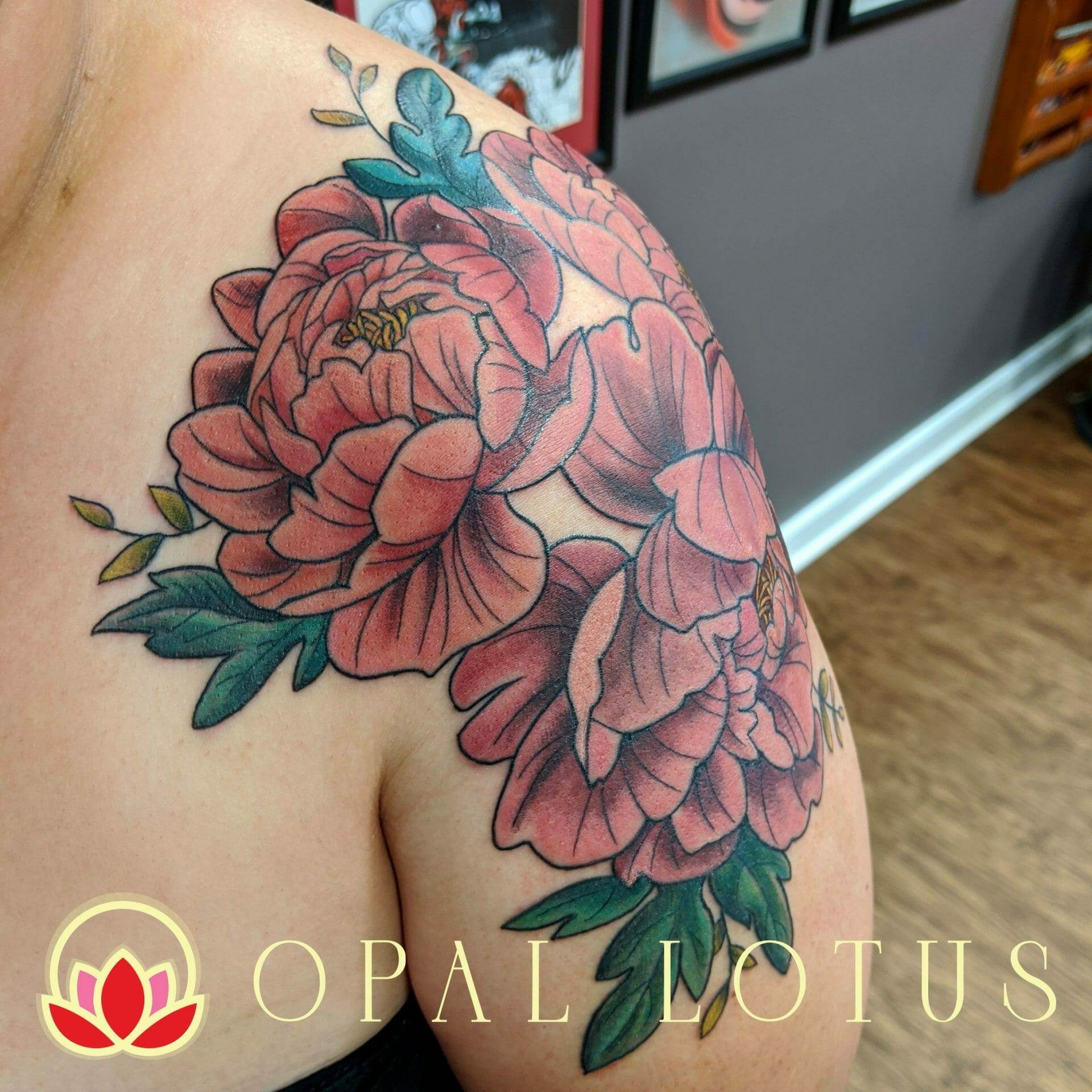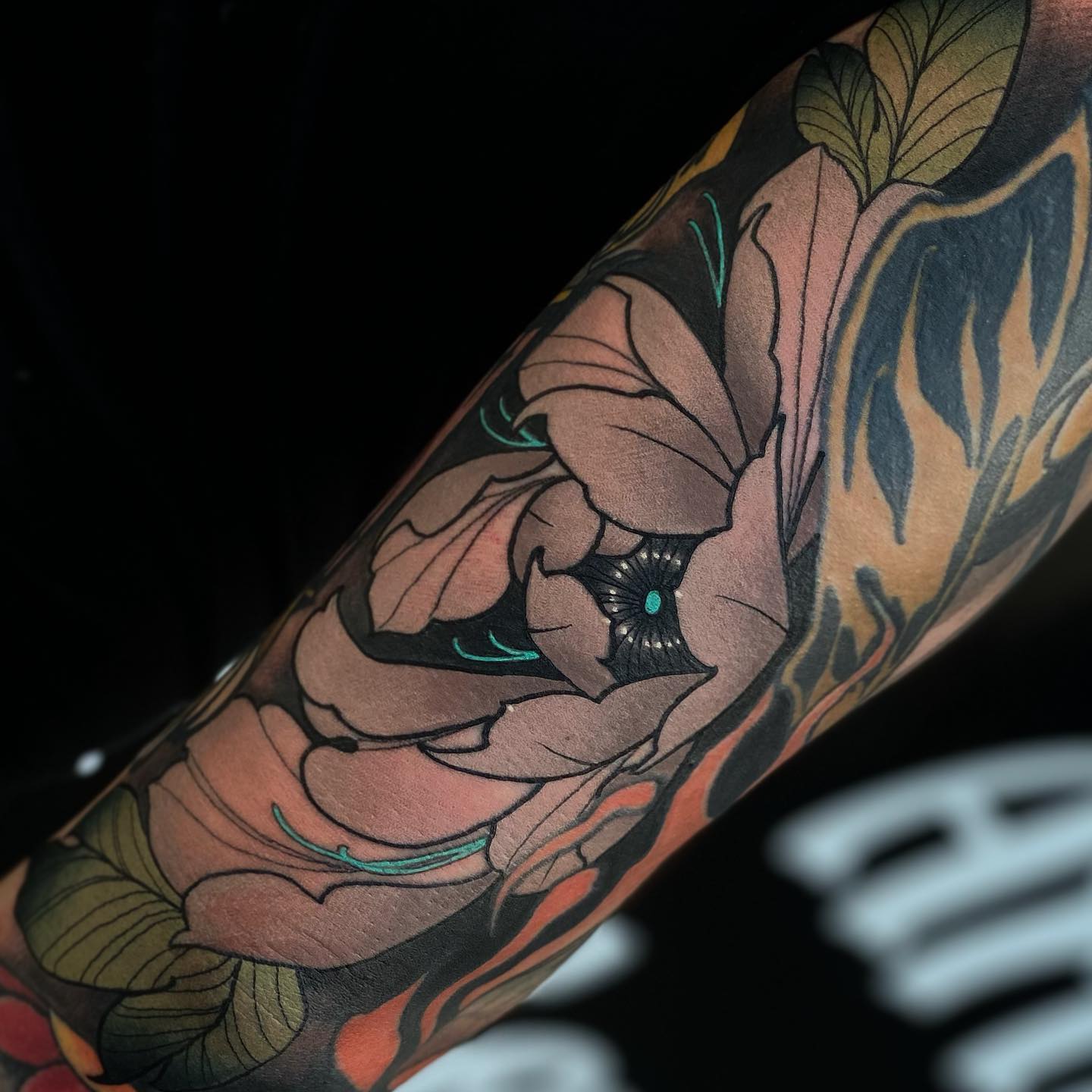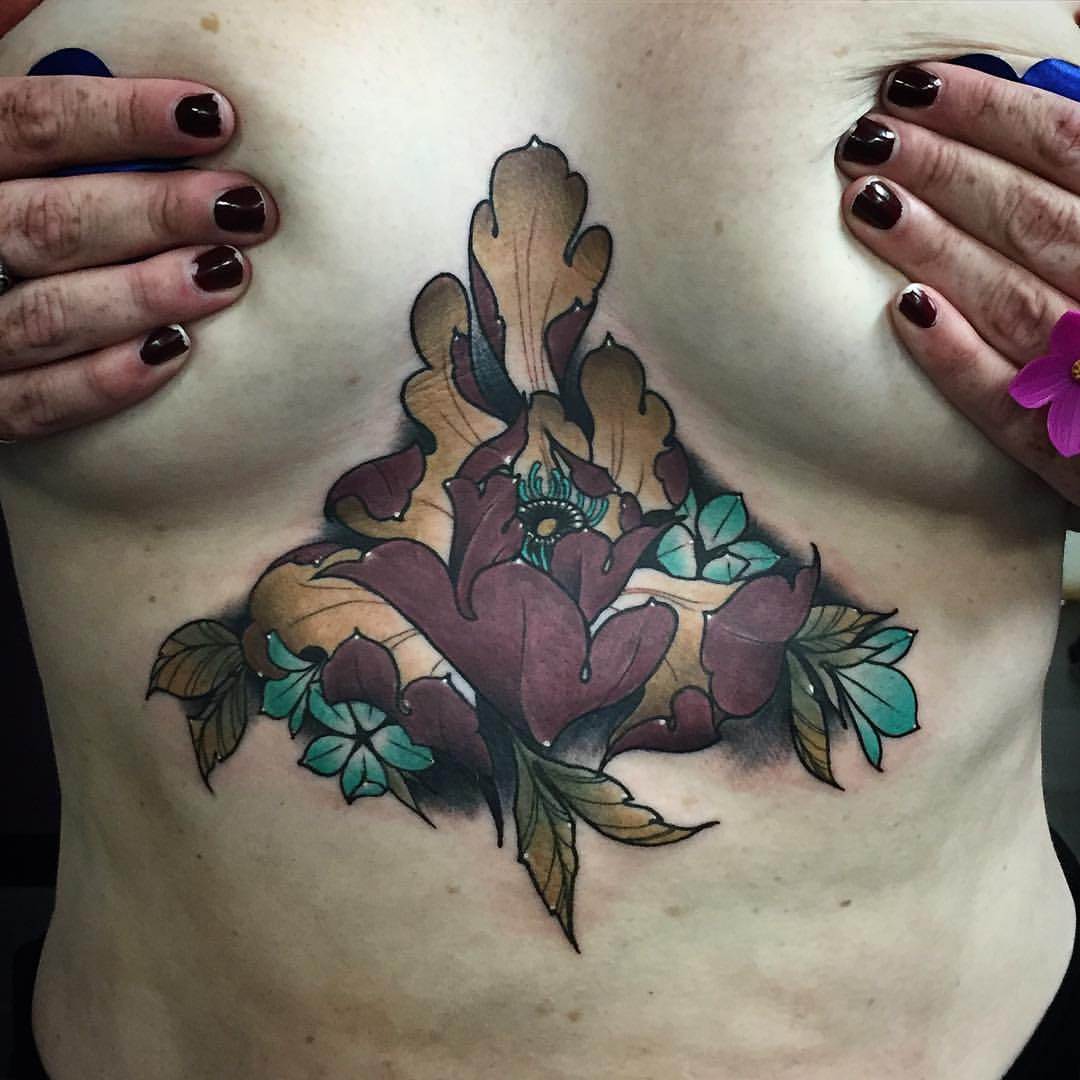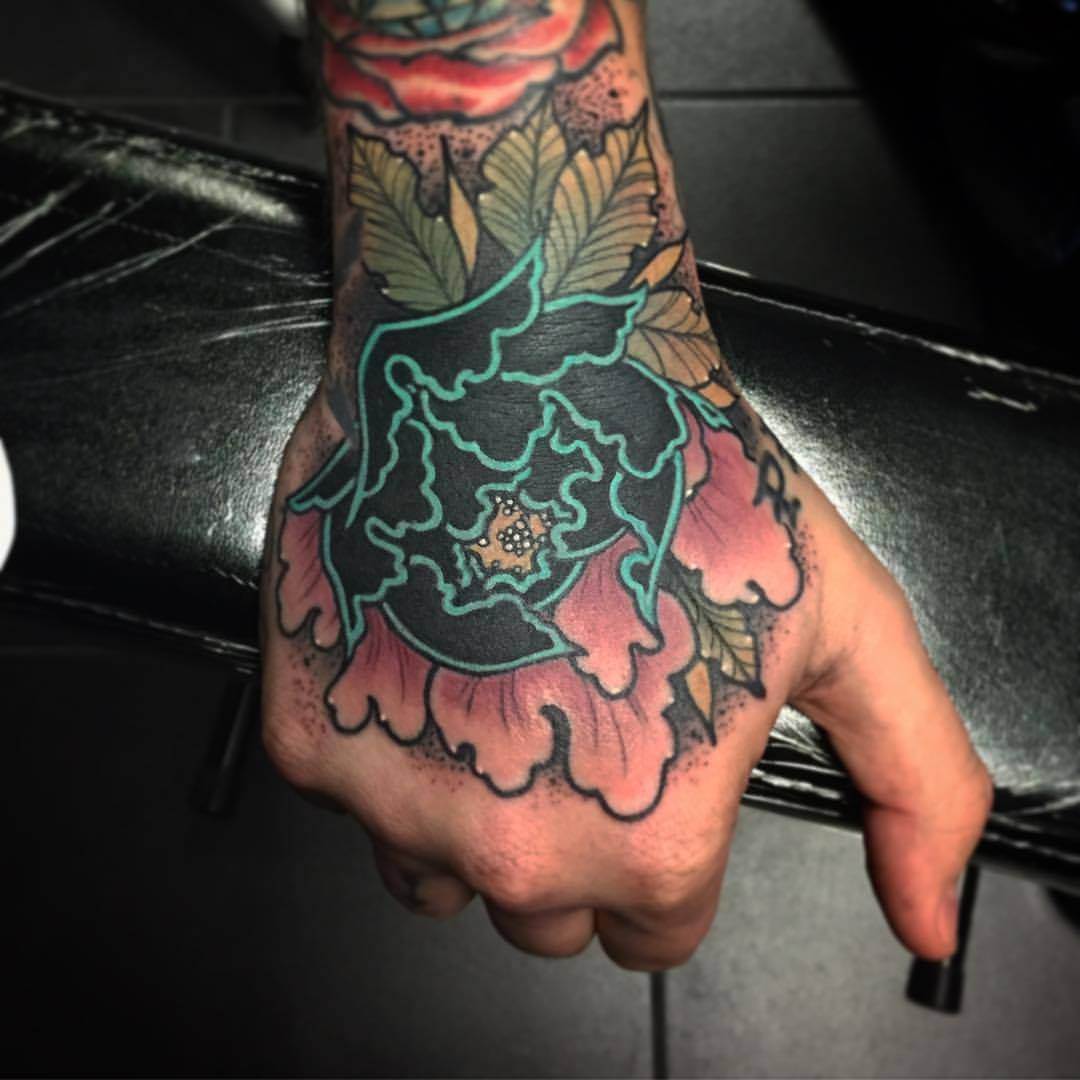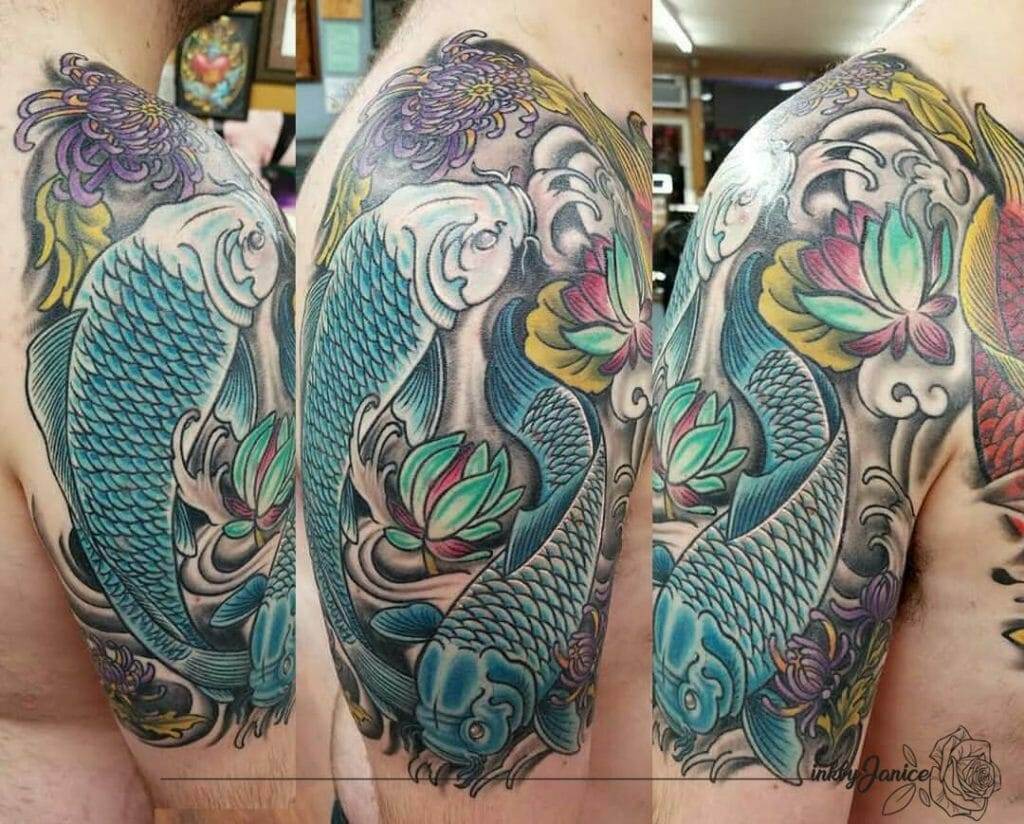What are Japanese tattoos?
It would be an oversimplification to say that Japanese Tattoos have a complex and rich history. The Japanese culture has had many tattoos that have been used to express their culture. Due to major sociological changes, the cultural meanings and cultural understandings that Japanese tattoos have experienced throughout Japan’s history can be attributed to these events. Japanese tattoos have seen significant cultural changes and acceptance, ranging from religious and shamanistic meanings to affiliations with Japanese mafia.
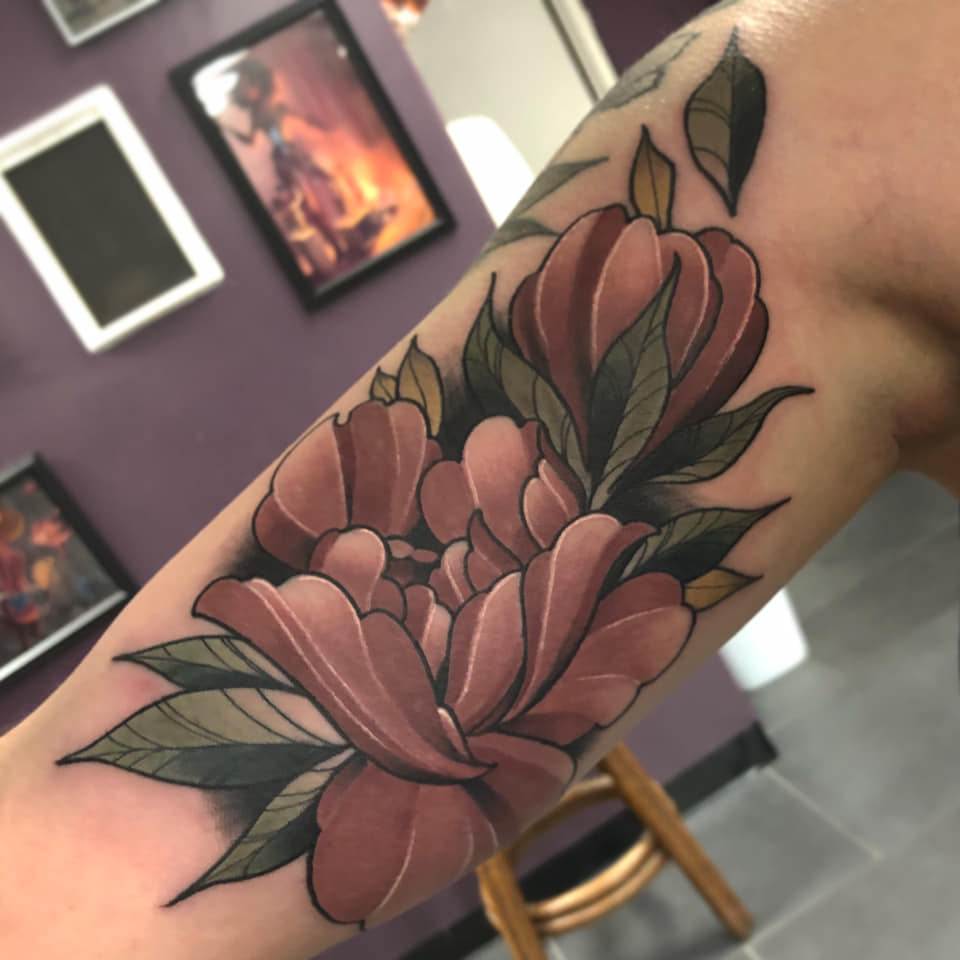
Japanese tattoos have a long and storied history. Originally, they were used to denote social status and carry spiritual symbols. The term “irezumi” is used to describe traditional tattooing with implements in a Japanese style, and “tebori” is the term for handmade tattoos. Today, Japanese tattoos are widely recognized for their cultural influence and beautiful artwork. With their deep symbolism and intricate designs, they are the perfect way to express yourself or commemorate an event or moment in your life. Read on to learn more about the history, symbolism, and modern-day views of Japanese tattoos.
The History of Japanese Tattoos
Japanese tattoos have a long and rich history, going as far back as 5000 BCE. During this era, clay figurines were found with painted faces and tattoo marks. By 297 AD, the ancient text Wei Chih noted that men of the upper classes were tattooed. Tattooing was also used as a form of punishment during the Edo period, with criminals being tattooed in specific locations depending on their crime. Over time, Japanese tattooing continued to evolve, with the Yakuza adopting it to symbolize their criminal affiliations, and the Horishi becoming skilled practitioners of the art. Today, there is an abundance of modern-day views on Japanese tattoos, with many appreciating the beauty and symbolism behind them.
Types of Japanese Tattoos
Japanese tattoos come in many forms, from the traditional Irezumi to more modern designs. The most classic Ukiyo-e motifs that we see in tattoos today include Japanese folkloric figures, masks, Buddhist deities, famed samurai, tigers, snakes and koi fishes. One of the most popular types of Japanese tattoos is the Ryu tattoo, which is a dragon tattoo. In Japan, dragons symbolize balance, freedom and good luck. Koi tattoos are also popular, as they are said to bring good fortune. Another type of Japanese tattoo is the Yakuza tattoo which has become infamous due to its association with organized crime. The Horishi is a special type of Japanese tattoo artist that specializes in creating traditional Irezumi tattoos. They have studied the technique for many years and have dedicated their lives to perfecting it.
View Our
Japanese Tattoo Portfolio
How to choose a Japanese tattoo
The Horishi
Japanese tattoos, or “irezumi,” are known for their intricate designs. In Japanese tattoo culture, the tattoo artist, or “horishi,” holds an elevated status. Horishi are master tattooists who practice traditional Japanese tattooing. They are craftspeople, and it’s generally believed that they are blessed with special artistic powers. Horihiro Mitomo is a horishi, or tattoo artist, who works entirely by hand in his studios in Tokyo and Osaka, drawing on traditional tebori methods of hand tattooing. Horiyoshi-III is Japan’s leading tattoo master, who is in Yokohama, and one of the few hori-shies in Japan who has the ultimate hand-tattooing technique. Horikazu Sensei was a horishi (a traditional Japanese tattoo master) who had been actively practicing since the Edo period. He worked in the traditional tebori method of hand tattooing. Horishi Palette can now take The Ancient art of Horimono (traditional Japanese tattoo), to a modernistic level, with four new colors combined with the traditional black ink.
Symbolism of Japanese Tattoos
Symbolism is an important part of Japanese tattoos, as it has been for centuries. The color black is associated with mourning in the US, but in Japan, the color white is used to signify the passing away of a loved one. Dragons are a popular motif in Japanese tattoos and they represent balance, freedom and good luck. The Japanese Foo Dog or Lion is also a popular tattoo, which symbolizes protection, strength and power. Peony tattoos are also popular and they signify bravery, courage, honor, good fortune, romance and prosperity. Irezumi tattoos are often seen as charms for protection and can symbolize devotion as well as strength. The traditional Japanese art of tattooing is known as Irezumi and it invokes mythical beasts, flowers, leaves and other images that have been featured in stories and myths for centuries. Before World War II, Japanese tattoos were also used to signify social status. Red is another popular colour in Japanese tattoos and it stands for passion and courage.
Meaning of Japanese Tattoos
The meaning of Japanese tattoos goes beyond the aesthetic purposes they serve. They are also associated with rich symbolism and spiritual devotion. For example, a white color is used to symbolize passing away in Japan, while dragons are seen as a representation of balance and good luck. Additionally, before World War II, Japanese tattoos were used to depict social status. Furthermore, traditional Japanese tattoos, or Irezumi, are often seen as charms for protection. They can be used to symbolize devotion and have a lot of red ink presence, as the color red is associated with happiness, passion and luck in Japanese culture.
Yakuza Tattoos
Yakuza tattoos are particularly interesting, as they tell a story of lavish narratives hand-inked and illustrated over the body to cover up prison tattoo marks indicating criminals. The significance of tattoos in the Yakuza is typically related to imagery and symbols in Japanese art, culture, and religious beliefs. Yes, you can get a traditional yakuza tattoo – but it’s not as easy as just walking into any tattoo parlor. Yakuza don’t use tattoos to identify their members, so you won’t run into trouble. These tattoos represent what the person wants to show the world – and it’s actually the tattoo master who’s deciding whether that person is good enough to have a tattoo done. The shape of the tattoo was based on where the crime occurred – even if it was something small like shoplifting. Tattoos came to be associated with criminals within Japanese society, so soon those with tattoos choose to embrace the art form and used them as way to show their wealth and importance in the criminal class.
Modern-Day Views on Japanese Tattoos
Despite their long history, tattoos in Japan are still considered taboo by many and are often associated with organized crime. While tattoos may be gaining acceptance in the world, in Japan they continue to be looked down upon. Even today, there are many beaches, pools, and hot springs that have banned people with tattoos from entering. The modern-day views on tattoos in Japan are complex and ever-evolving, but one thing that has remained constant is the stigma surrounding them.

WALK INS WELCOME
Stunning japanese tattoos
Don’t wait – come to Opal Lotus Tattoo, the premier artist in the Katy Houston area for a truly remarkable Japanese tattoo. Our experienced team will create something that is perfect for you and make sure you love it! Come get your magnificent tattoo now – there’s no time like the present!
Japanese Tattoo Meanings
Dragon Tattoo Meanings and Symbolism:
The Japanese dragon tattoo is a popular representation of a legendary and diverse creature. A Japanese dragon is usually depicted as a wingless serpentine creature, with clawed feet. Dragons were originally identified as water deities or are associated with large bodies of water and rainfall. They can cause destruction but also provide wisdom and protection. They have meanings that include insight, power for good and benefits for humanity.
Meanings and symbols of the Tigers Tattoo
In Japanese mythology, tigers are often shown in constant opposition to the dragon. This is because they have borrowed their meanings largely from Chinese mythology. These are often portrayed as the opposing forces of yin or yang. The images of Tigers alone are strong symbols of strength, power and courage. It is also a symbol for warding off evil spirits and sickness, as well as for preventing misfortune.
Foo Dogs Tattoo Meanings and Symbolism:
Foo dog is a representation of a lion-like, dog-like animal that originated in Chinese Buddhism. This mythical beast is often depicted as a fierce guardian. They are associated with courage, luck, and strong defenses.
Symbolisms and Meanings of the Koi Tattoo:
Koi is revered as a symbol of Japanese culture, and it is highly valued by Japanese people. Koi, which means “carp” in English, is a type fish that represents perseverance. They are often seen swimming upstream against the currents of rivers. They can be a symbol of strength, perseverance, and luck in the face of adversity.
Oni Mask/Demon Mask Tattoo Meanings and Symbolism:
Japanese tattoos often depict Oni. They represent mythology related to the spirit world as well as the demons that torture those who live here. They are thought to be troll-like, malevolent creatures that spread disease and sickness. Not all oni are evil. Some oni can even be considered protectors. The oni masks are often depicted as tricksters, defenders, or insidiousness.
Snake Tattoo Meanings and Symbolism:
Although the snake is often depicted as a feminine divine entity in Japanese culture, it can also be used to represent many other meanings. The Japanese tattoo depicts the snake as a symbol of protection, wisdom and good fortune. They can also be used to protect against illness, disaster, or misfortune.
Flower Tattoo Meanings and Symbolism:
Japanese tattoos often include flower tattoos. They can be combined with other imagery. Each type of flower has its own symbolism and meaning. The lotus flower is a symbol of wisdom, knowledge, and insight. Japanese tattoos often depict cherry blossoms as drifting through the air or blowing in the winds. The Cherry blossom may represent the fleetingness of life, death, and natural beauty that is only temporary. The Japanese tattoos are often associated with Chrysanthemum flowers, and they can also be associated with royalty. The chrysanthemum flowers can be associated with longevity, happiness, joy, or even godliness.
Water/Waves Tattoo Meanings and Symbolism:
In Japanese tattoos, water and waves play a significant role. Japan is an island country that has seen many tsunamis and severe storms. This can be expressed in sculptures, paintings and tattoos. The wave represents strength and life. Water, on the other hand, symbolizes that life is fluid and ebbs and flows like water. It is associated with water’s strong qualities, which can be destructive and powerful as well as gentler and quieter.


